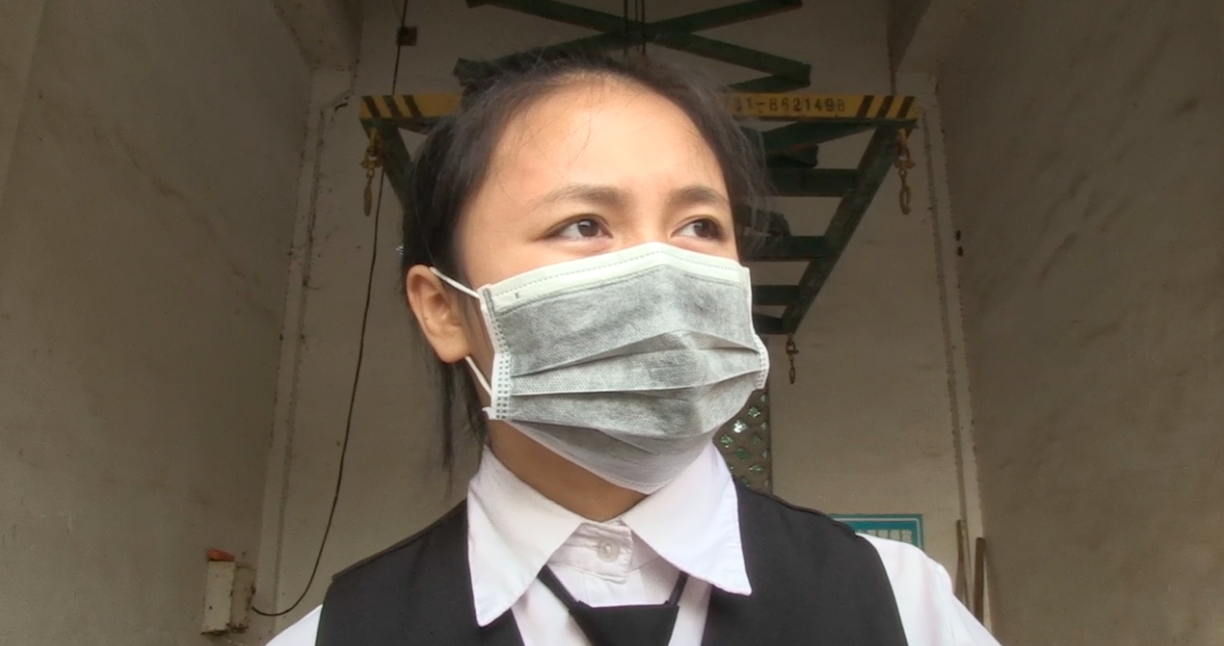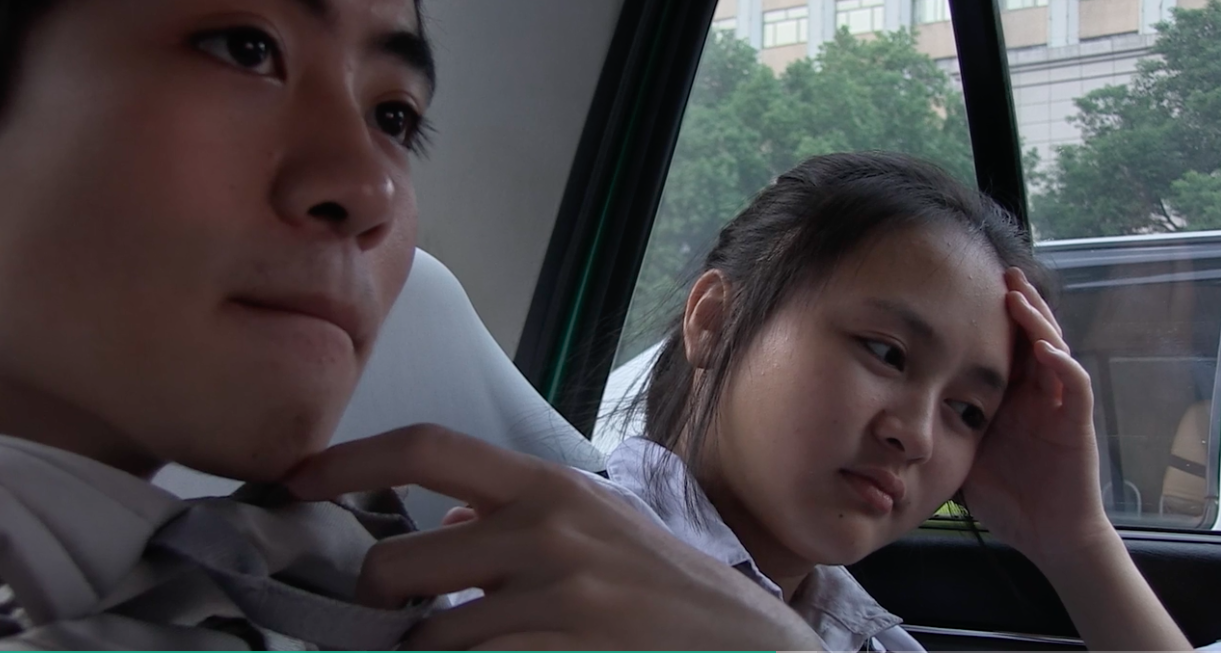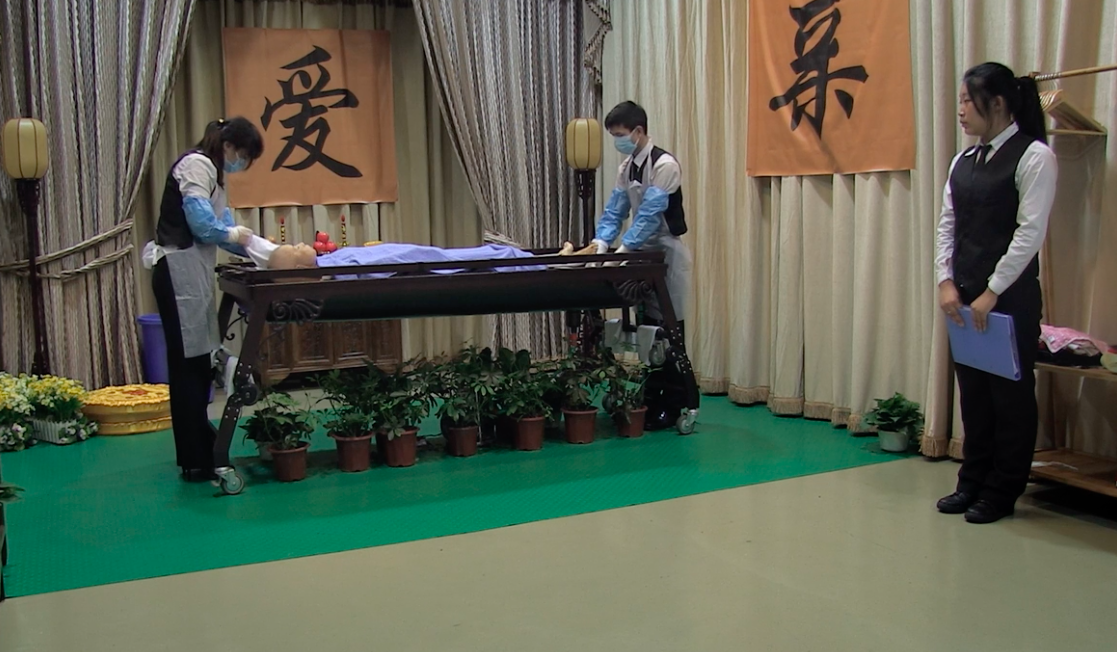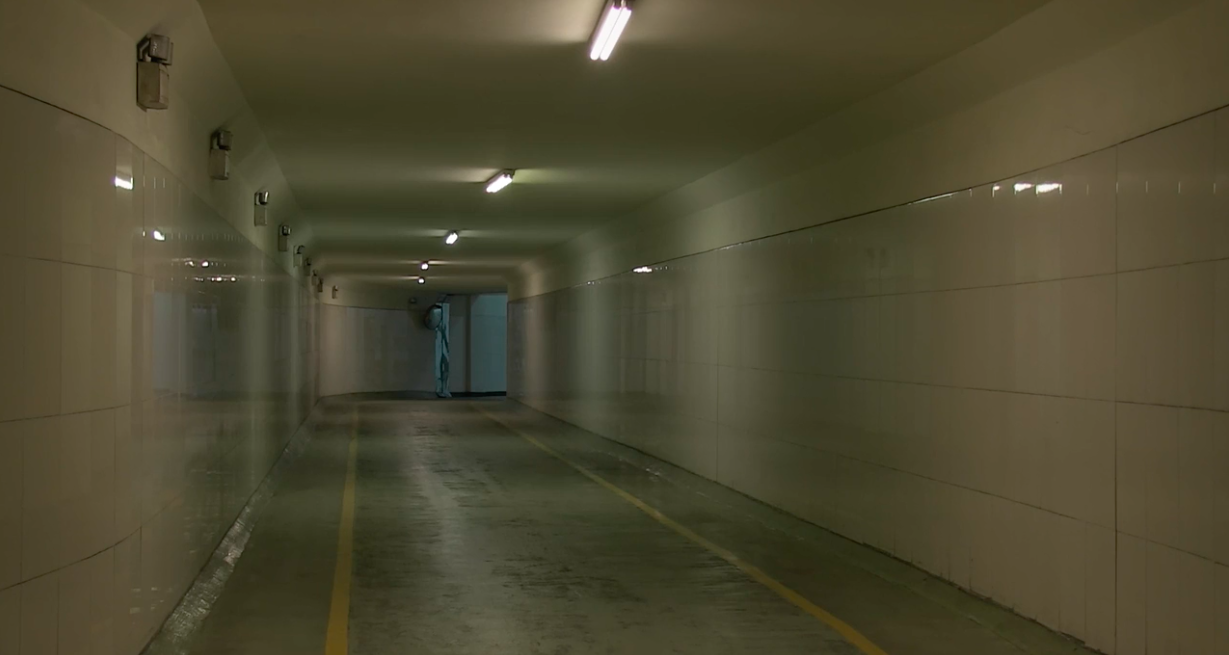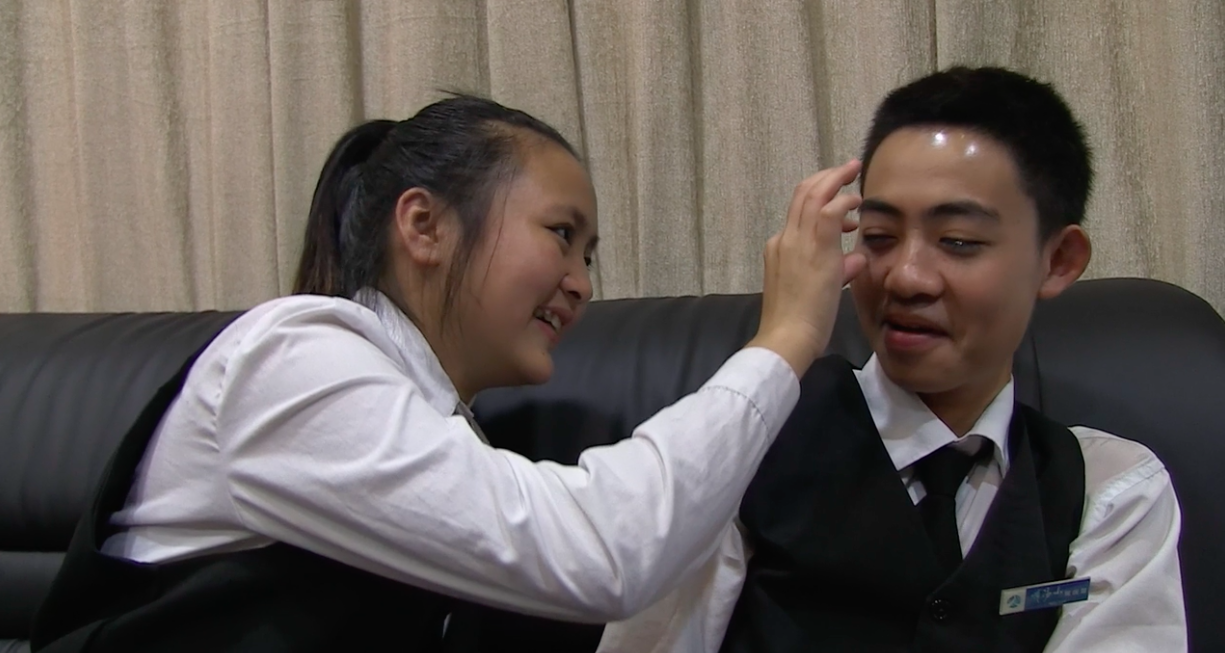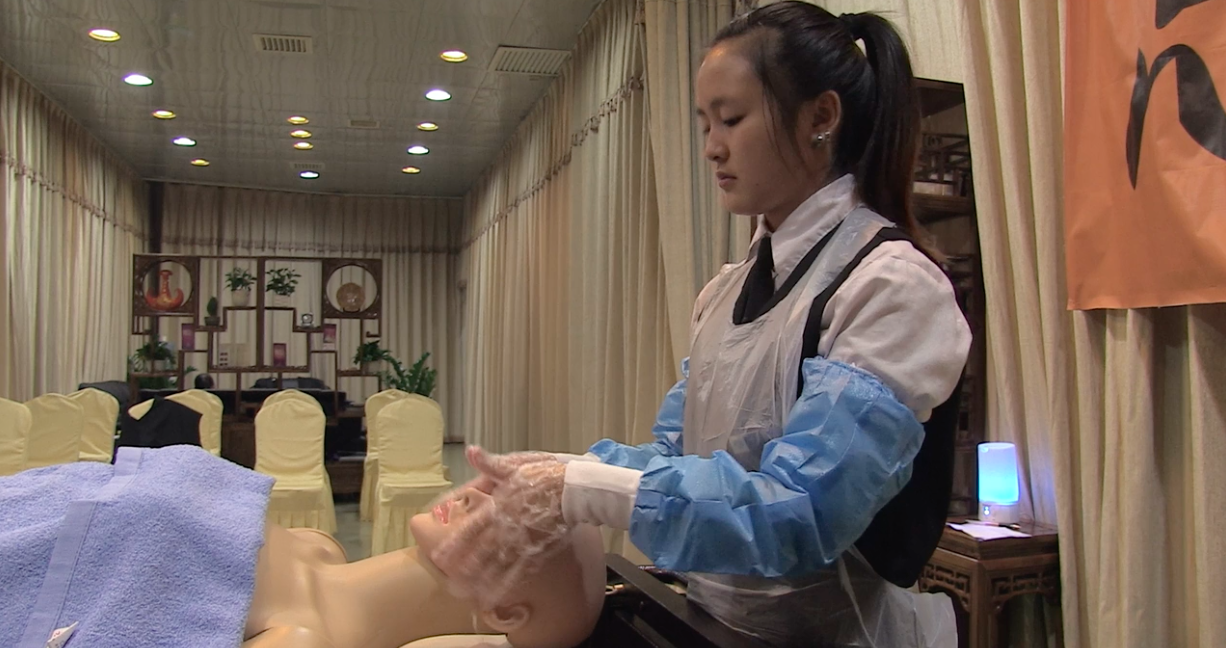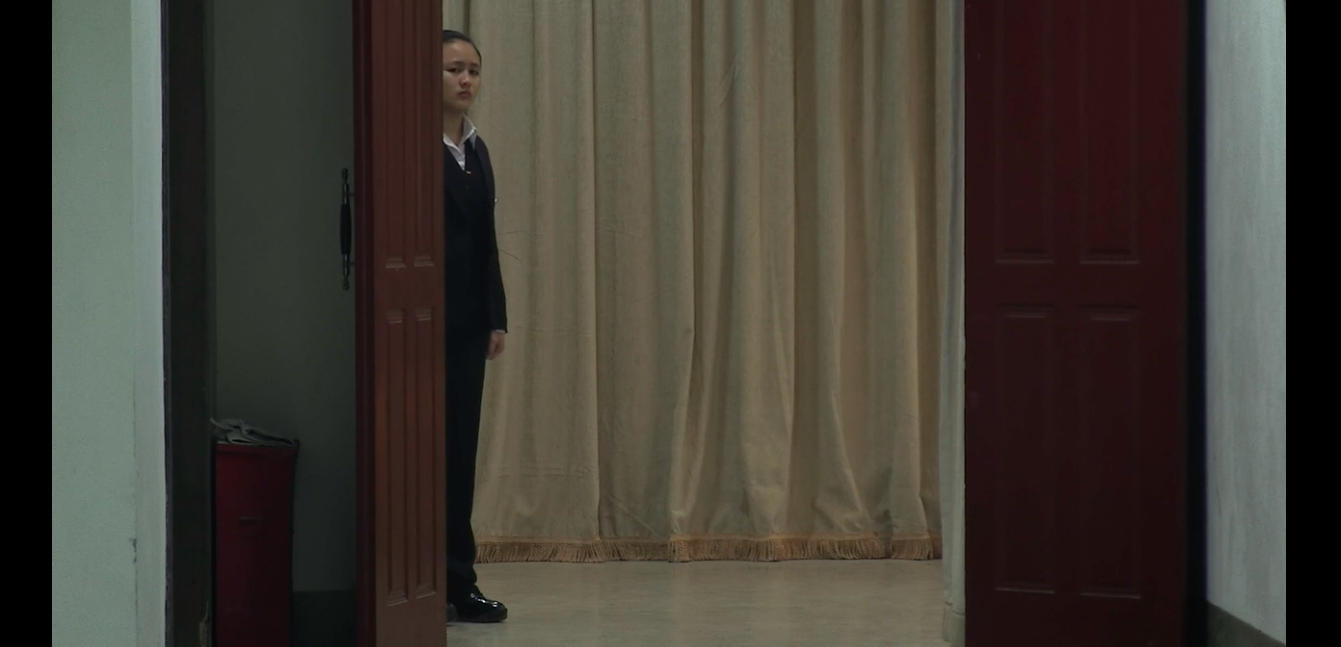Imagine being confronted by death on a daily basis when you have your whole life ahead of you? Meet Ying Ling, a 17 year old training to be a mortician at Ming Yang Mountain Funeral Home in Hunan and the star of Carol Slater’s touching documentary Almost Heaven.
She is one of many kids in China who travel far from home to find a job. On the surface, she is your typical person on the cusp of adulthood – naïve, fun-loving and trying to find their place in the world. But in this morbid environment, her gentle character reveals nuances that draw us deeper into the story. And that story prompts us to reflect on our own life and the passing of time.
We see her role-playing the “spa” ritual – learning how to cleanse a corpse, as if washing away the illness and pain of the deceased as they prepare to pass into the next life. Gentle piano plays in the background as employees trim hair, massage the deceased’s face and feet and gently pass a shower head from side to side in a delicate motion.
A supervisor encourages the young trainee to show more emotion. “Feel inside your heart,” she appeals. “The love in you will show.” But Ying Ling doesn't think she can sacrifice herself to this job. She must retain that part of herself.
Her one respite is a cheeky young co-worker, whose long lashes she can't help but pull. He’s a few years older but shares Ying Ling’s playful nature. They hang out, play shoot’em up games and share their hopes for the future. Both are extremely likeable and their flirty scenes together help to lighten the mood. A nice counterpoint.
But then “Lashes” returns home at the behest his family. He also wants to spend more time with his grandparents while he still can. We realise that, behind that carefree exterior, he too is affected by all that he's seen on the job. Ying Ling feels more alone and lost than ever. Her mother won’t even let her come home to pick up winter clothes. You sense that something's got to give.
At an Open City Documentary Festival Q&A in September, the director said of Ying Ling, “I was drawn to her because she would always show every feeling in her face.” And it’s true. She is at once expressive and expressionless, able to convey a sense of confusion, disinterest, anxiety, insecurity … and everything in between. When it seems like Lashes might not be on Skype for their catch-up call, her forlorn look says it all.
Carol Salter on Ying Ling in @AlmostHeavenDoc, 'I was drawn to her because she would always show every feeling in her face.' #OpenCityDocs pic.twitter.com/VzmOK92YSg
— Open City Docs (@OpenCityDocs) September 8, 2017
As a character study, Almost Heaven is compelling stuff. You will smile, you wonder. You may well up and reflect on your own loss; all within seventy-something minutes. The scenes featuring distraught relatives, wailing uncontrollably as they struggle to let go, may be difficult to watch. We can only wonder how Slater managed to capture such intimate and private family moments, however measured they were.
But these scenes are also quite visceral and remind us of what’s at stake in this life. Slater's parents passed away while making this film – clearly, it’s been a journey in terms of her own attitude to death and how to handle loss. The director says her coming-of-age film is universal because it’s about life choices. Here is a reminder to feel joy whenever you can, to make the most of every moment.
Towards the end of the film, we learn that the near-death experience of daily life has also made Ying Ling more determined to spend time with her family. As she says to her father on the phone: “I want to be closer to you before it’s too late.” Another scene where the young girl is on the brink of giggling or crying, you’re not sure which.
And her next stop? Well, let’s just say it’s not a million miles away.

